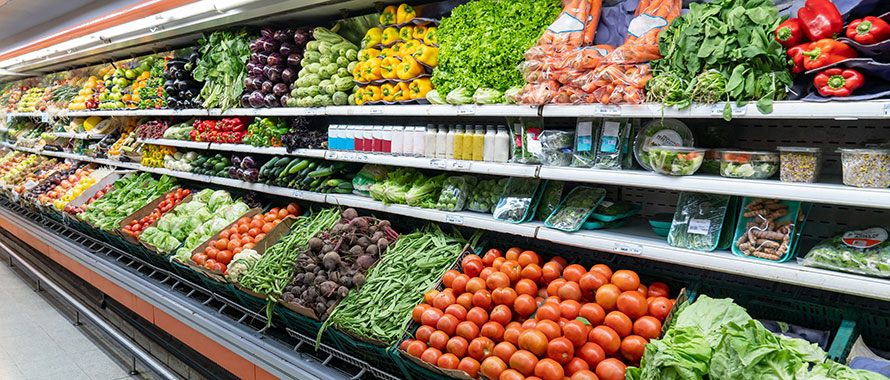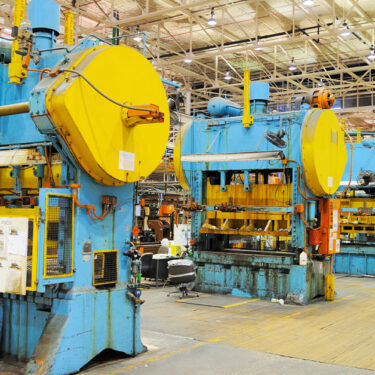Food recalls in the U.S. are on the rise, reaching a new high since the pandemic began and reversing the previous trend of decline, according to reports. In total, the U.S. Department of Agriculture and the U.S. Food and Drug Administration together recorded 313 food recalls and public health alerts in 2023, compared to 289 and 286 in 2022 and 2021, respectively.
While FDA recalls have remained steady each year since the pandemic, USDA recalls of meat, poultry and eggs jumped 31% in 2023, in part due to a rise in recalls of foods with undisclosed allergens, the Los Angeles Times reported April 26.
Featured Solutions
Other types of product recalls have also been increasing, reaching a five-year high in 2023 with a total of 3,300 recalls last year in industries ranging from automotive to medical devices, NBC News reported on March 8. The trend points to the importance of Product Recall Insurance, which too many companies currently forgo, said Samantha Krause, Manager, Commercial Insurance, Burns & Wilcox, Minneapolis, Minnesota.

With so much mass production, there is always some level of quality control that can seep through the cracks.
“A lot of companies are going without it not realizing how important it is to have,” Krause said. “There are policies that can include minimal product withdrawal coverage, but they are just not adequate. It is really important to know the difference.”
The risk of undeclared allergens
Undeclared allergens were the most common reason for food recalls in 2023, followed by listeria, salmonella, foods that were not inspected, and foods containing a foreign matter, the Los Angeles Times reported. According to the publication, the 27% rise in recalls related to foods with undeclared allergens coincided with the implementation of a federal law that added sesame as the ninth allergen that is required to be listed on food labels. Of the 27% increase, 39% was caused by undeclared sesame, Food Safety Magazine reported on April 26.
Recent sesame-related recalls include a February recall of Wegmans-branded hummus that contained undeclared sesame, which was attributed to a labeling error, WCVB in Boston reported. In April, the Oregon Spice Company recalled 5-ounce containers of Johnny’s Parmesan Garlic Seasoning because they could contain undeclared sesame, according to the FDA.
Allergens can unintentionally enter food products in a variety of ways, Cruz explained. “It can be a multitude of things,” she said. “When cooking with products and making something with one result — a salsa, for example — you are using produce and ingredients that may be from a factory or a farm that is also a wholesale distributor. These companies may have large truckloads of vegetables mixed with other things like meat, nuts or wheat. It could commingle in transport or processing.”
Contact with an undeclared allergen could occur “from the point of being grown to the picking, the packing, or the movement from distributor to another distributor, from the farm to the warehouse,” she said. This is an even greater risk with products that advertise themselves as being allergen-free. “That is why it is very important to put on the label that this product has the potential to have been exposed to other allergens,” Cruz said, adding that if a product is advertised as allergen-free, “they really need to make sure that is a true statement.”
Both large and small companies are vulnerable to this type of error, “especially as small businesses continue to be purchased by larger conglomerates,” Cruz said. The limited number of “giants” in the food industry “continue to purchase the smaller guys,” potentially removing some of the oversight smaller companies tend to have. “There is definitely more room for error,” she said.
According to Krause, part of the temporary dip in food recalls during 2021 and 2022 could be related to reduced operations during the pandemic. “A lot of manufacturers were closed or not producing as much during that time, and overall fewer inspections and reviews happening,” she said. “Now that everything is mostly back open, it is important to be aware of the trends in that space.”
Understanding recall costs
The cost of a product recall can have a significant impact on a company’s bottom line. According to a February report in Food Business News, fiscal-year financial data from PepsiCo, Inc. showed that a Quaker recall in late 2023 that affected granola bars, puffed granola and other products was still impacting the company months later, reducing its operating profit by 19%. Earlier this year, the recall of a bicycle crankset by Shimano was expected to cost $18 million after the company reported a 24.6% reduction in revenue and a 52.3% drop in net profit, Cycling Weekly reported in February.

There are a lot of costs and services that can be provided on these policies … It is important to get guidance from an insurance professional who knows the space to make sure you are finding the right fit.
Some recalls can be more costly than others based on various factors, but consumable products and any products that could harm an individual are among the most risky, Krause said. In April, Tesla was ordered to recall almost 4,000 Cybertrucks due to an accelerator pedal that could stick when pressed down, CNN reported on April 19.
“Anything that can cause injuries tends to be the bigger concern as far as the severity of some of these things,” Krause said. “Medical devices are another big one.”
While a company’s Products Liability Insurance is designed to respond to bodily injury and property damage claims related to faulty products, most companies need a separate Product Recall Insurance policy to cover costs such as customer notification, shipping back recalled products and more. “This is for the recall process of getting your products off the shelf, notifying customers, and getting it restocked,” Krause explained.
Coverage can include business interruption expenses, 24-hour crisis management, brand rehabilitation and more, Krause said. “It can also pay for pre-recall expenses like the examinations to determine where the issue came from,” she said. “There are a lot of costs and services that can be provided on these policies, and a lot of different coverage options from different carriers. It is important to get guidance from an insurance professional who knows the space to make sure you are finding the right fit.”

Any company that is dealing with any type of product, especially with consumable products, needs to have Product Recall Insurance.
Business owners should also ask about whether their Product Recall Insurance covers both voluntary and involuntary recalls. “It is important to make sure those two parts are covered,” Cruz added.
Small errors can lead to major recalls, Cruz noted, pointing to the March 2022 recall of 162,000 pounds of Skippy peanut butter due to the risk that the jars could contain small stainless steel fragments from a piece of broken manufacturing equipment. “Something as simple as that can really be detrimental,” she said. “It can be catastrophic for a company.”
Many companies uninsured for recalls
Products Liability Insurance coverage may include a small sublimit for recall expenses, but this is generally not sufficient for most companies, Cruz and Krause pointed out. “There may be a small sublimit, but I would say that a lot of companies go without it or are underinsured,” Cruz said. “You would have to purchase a separate Product Recall Insurance policy to fill in that gap and give the proper coverage for the exposure.”
Companies “may underestimate the risk of a recall when they purchase the insurance,” she added.
“Any company that is dealing with any type of product, especially with consumable products, needs to have Product Recall Insurance,” Cruz said. “If you go without it, you are opening yourself up for a big exposure.”

These policies are not just an added ‘plus’ coverage anymore — it is really a necessity. They are there to help guide the company through a recall and get ahead of it.
Krause agreed, emphasizing the importance of being proactive. “Make sure that you are looking at Product Recall Insurance and getting guidance from an insurance professional,” she said. “These policies are not just an added ‘plus’ coverage anymore — it is really a necessity. They are there to help guide the company through a recall and get ahead of it.”
That includes reviewing policy forms with your insurance broker, Krause said. “Make sure that they are giving you options and walking you through the coverages,” she said. “It is important to get the guidance that you need to decide on the best policy option for your company.”







